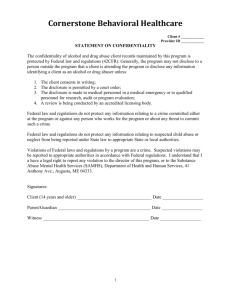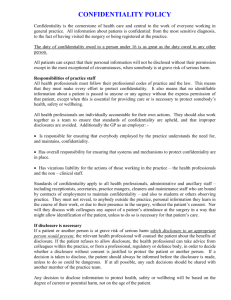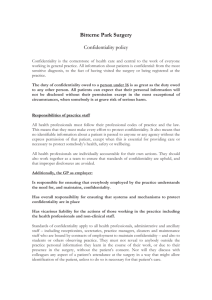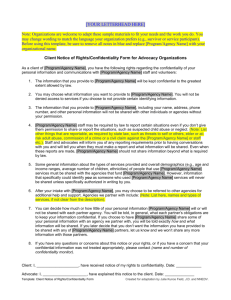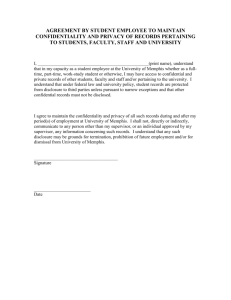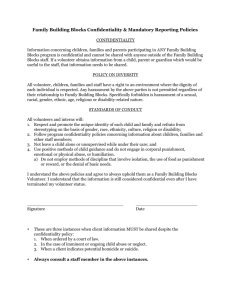File
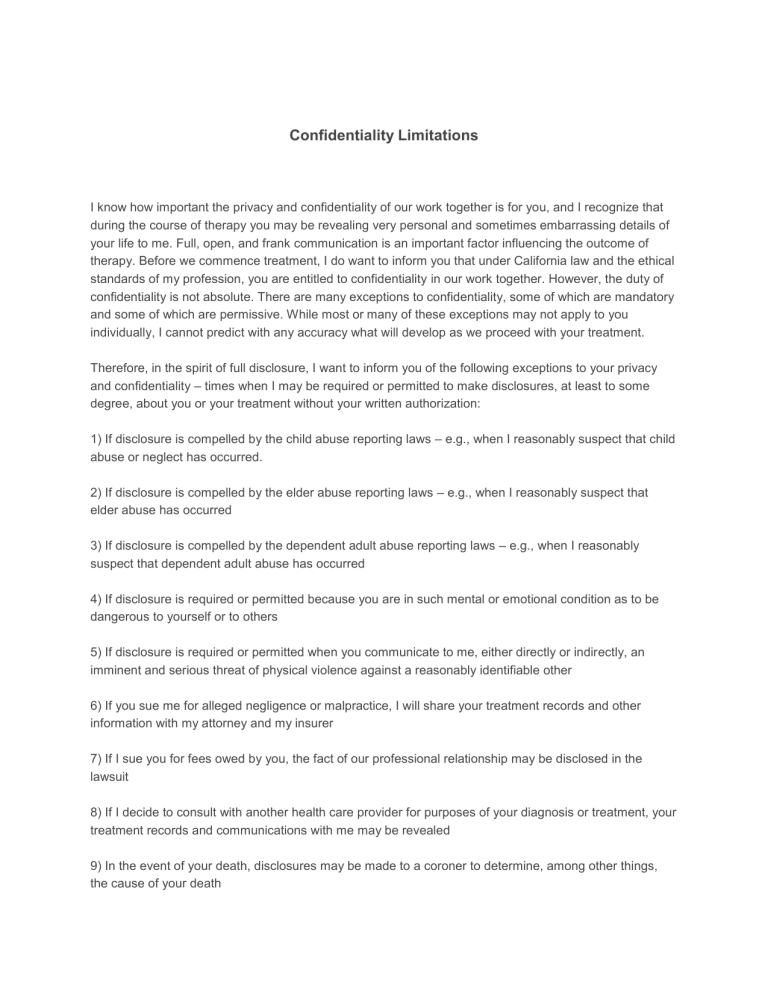
Confidentiality Limitations
I know how important the privacy and confidentiality of our work together is for you, and I recognize that during the course of therapy you may be revealing very personal and sometimes embarrassing details of your life to me. Full, open, and frank communication is an important factor influencing the outcome of therapy. Before we commence treatment, I do want to inform you that under California law and the ethical standards of my profession, you are entitled to confidentiality in our work together. However, the duty of confidentiality is not absolute. There are many exceptions to confidentiality, some of which are mandatory and some of which are permissive. While most or many of these exceptions may not apply to you individually, I cannot predict with any accuracy what will develop as we proceed with your treatment.
Therefore, in the spirit of full disclosure, I want to inform you of the following exceptions to your privacy and confidentiality – times when I may be required or permitted to make disclosures, at least to some degree, about you or your treatment without your written authorization:
1) If disclosure is compelled by the child abuse reporting laws – e.g., when I reasonably suspect that child abuse or neglect has occurred.
2) If disclosure is compelled by the elder abuse reporting laws – e.g., when I reasonably suspect that elder abuse has occurred
3) If disclosure is compelled by the dependent adult abuse reporting laws – e.g., when I reasonably suspect that dependent adult abuse has occurred
4) If disclosure is required or permitted because you are in such mental or emotional condition as to be dangerous to yourself or to others
5) If disclosure is required or permitted when you communicate to me, either directly or indirectly, an imminent and serious threat of physical violence against a reasonably identifiable other
6) If you sue me for alleged negligence or malpractice, I will share your treatment records and other information with my attorney and my insurer
7) If I sue you for fees owed by you, the fact of our professional relationship may be disclosed in the lawsuit
8) If I decide to consult with another health care provider for purposes of your diagnosis or treatment, your treatment records and communications with me may be revealed
9) In the event of your death, disclosures may be made to a coroner to determine, among other things, the cause of your death
10) If you file a complaint against me with the state licensing board, I may forward your records and other information to my attorney and to the licensing board
11) If you file a complaint against me with the Ethics Committee of my professional association, I may reveal your records and other information in the course of that proceeding
12) If you file a claim for reimbursement with an insurer, I may share information with the insurer about your diagnosis, progress, prognosis, and the treatment plan
13) If I am ordered by a court to disclose records or information pertaining to you or your treatment
14) If there is a search warrant lawfully issued to a governmental law enforcement agency authorizing the seizure of your records
15) If disclosure is compelled by a party to a proceeding before a court or administrative agency pursuant to a subpoena for my appearance and testimony or a subpoena for my records pertaining to your treatment
16) If disclosure is otherwise required or permitted by law
Please feel free to ask me about any of these exceptions to confidentiality. We can discuss these public policies in more detail if you have any questions.
